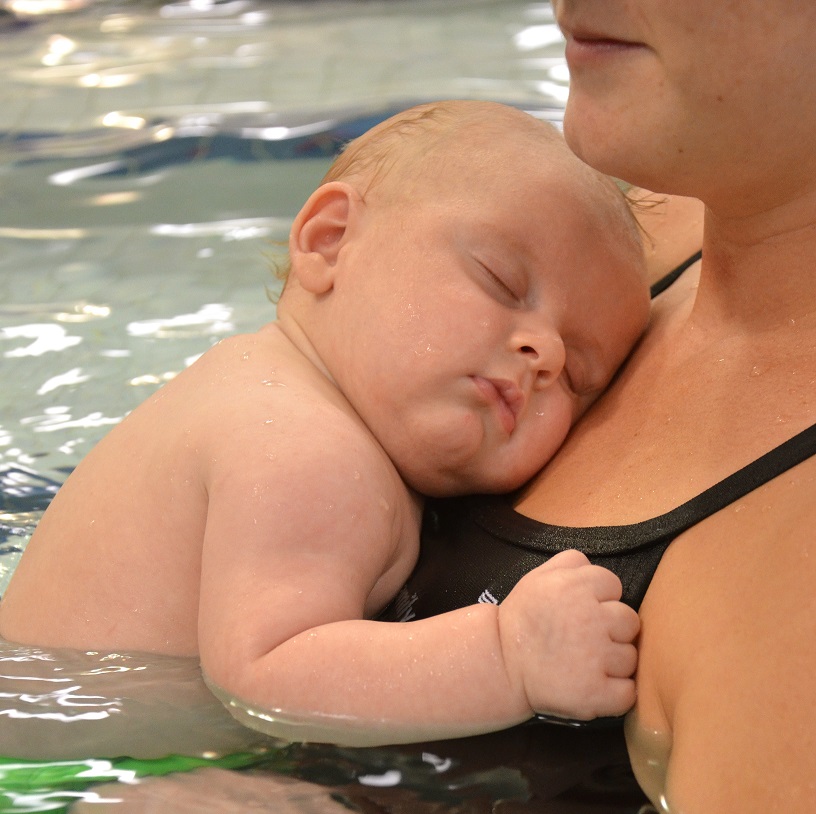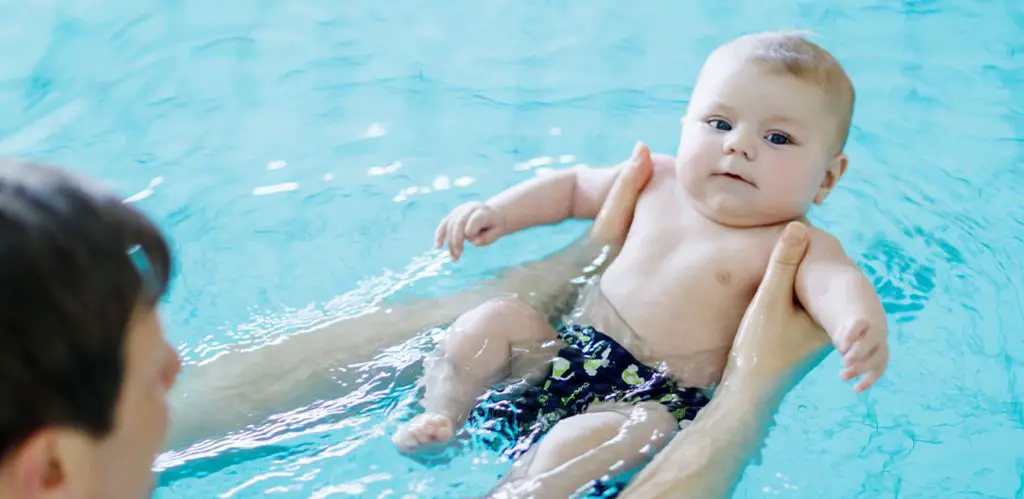As a parent, it is natural to have concerns about your baby’s safety and well-being. One question that often arises is whether it is safe for a baby to go in the pool at just 2 months old. In this article, we will discuss the factors to consider when deciding whether to introduce your baby to the pool at such a young age.

Credit: www.healthline.com

Credit: www.hubbardswim.com
Benefits of Early Pool Introduction
Water activities can offer numerous benefits for babies, even at a young age. Here are some of the advantages of introducing your baby to the pool early:
- Water familiarity: By exposing your baby to water at an early age, you can help create a sense of comfort and familiarity, which can be valuable for future swimming lessons.
- Sensory development: The pool environment stimulates a range of sensory experiences, from the feeling of water on the skin to the sounds and movements. This can aid in the development of your baby’s senses.
- Bonding opportunities: Swimming with your baby can be a fun and bonding activity, promoting a sense of closeness and trust between you and your little one.
Safety Considerations
While there are benefits to introducing your baby to the pool early, safety should always be the top priority. Here are some important safety considerations to keep in mind:
| Factor | Consideration |
|---|---|
| Pool temperature | The water temperature should be warm enough to ensure your baby’s comfort, typically around 86-90 degrees Fahrenheit (30-32 degrees Celsius). |
| Pool cleanliness | Ensure that the pool water is clean, properly chlorinated, and free of any potential contaminants. |
| Parental supervision | Never leave your baby unattended in the pool, even for a moment. Always keep a close eye on your little one and be within arm’s reach. |
| Immune system | Keep in mind that younger infants have less developed immune systems. Consult with your pediatrician before taking your baby to the pool to ensure their immune system is strong enough. |
| Introducing water gradually | Start with short and gentle water experiences, such as baby swim classes or simply introducing your baby to shallow water. Observe your baby’s reaction and adjust accordingly. |
Swim Diapers and Sun Protection
When taking your baby to the pool, it is essential to address certain practical aspects, such as swim diapers and sun protection:
A swimming diaper is necessary to prevent accidents in the pool. Regular diapers are not suitable as they absorb water and become heavy, making it difficult for your baby to move comfortably. Invest in swim diapers specifically designed for use in pools.
Sun protection is crucial, as newborns and infants have delicate skin that is highly susceptible to sunburn. Apply a broad-spectrum sunscreen with a minimum SPF of 30 before heading outdoors. Additionally, consider using a hat, sunglasses, and protective clothing to shield your baby from the sun’s harmful rays.
Listening to Your Baby’s Cues
Every baby is unique, and it is important to pay attention to your baby’s cues and comfort level. Not all babies may enjoy the pool, particularly at such a young age. Look for signs of discomfort or distress such as fussiness, crying, or tense body language. If your baby shows any signs of unease, it may be best to wait until they are a bit older before trying again.
Conclusion
In summary, introducing your baby to the pool at 2 months can have numerous benefits, including water familiarity, sensory development, and bonding opportunities. However, it is crucial to prioritize safety by ensuring the pool temperature, cleanliness, and parental supervision are appropriate. Consult with your pediatrician, introduce water gradually, and pay attention to your baby’s cues to make the experience enjoyable for both you and your little one. Always remember that every baby is different, and it is important to tailor the experience to your baby’s unique needs.





